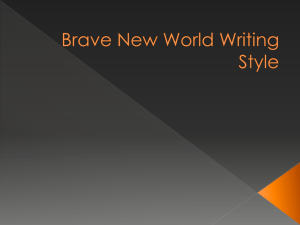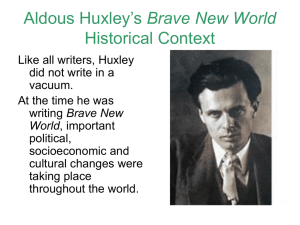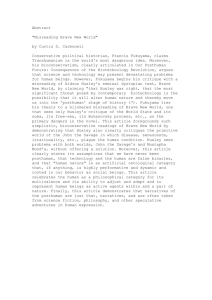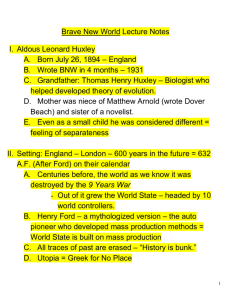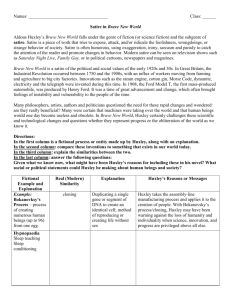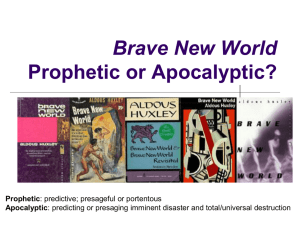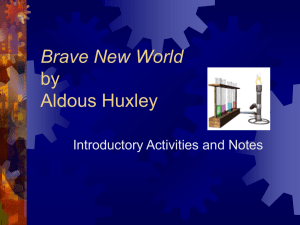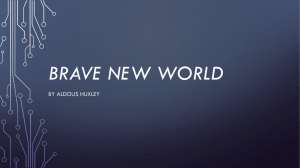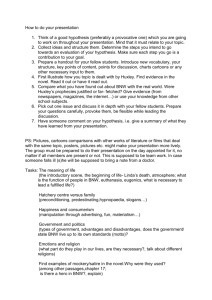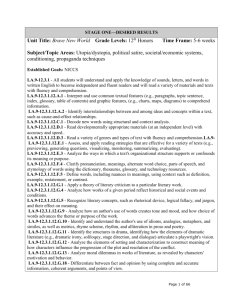Names:
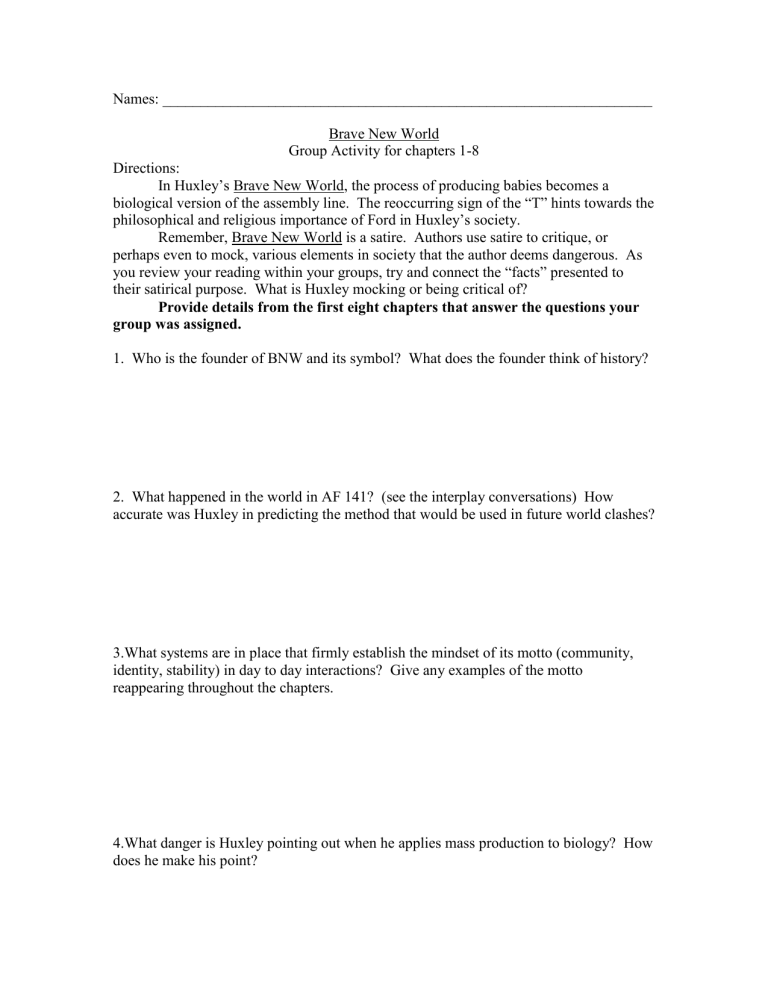
Names: _________________________________________________________________
Brave New World
Group Activity for chapters 1-8
Directions:
In Huxley’s Brave New World, the process of producing babies becomes a biological version of the assembly line. The reoccurring sign of the “T” hints towards the philosophical and religious importance of Ford in Huxley’s society.
Remember, Brave New World is a satire. Authors use satire to critique, or perhaps even to mock, various elements in society that the author deems dangerous. As you review your reading within your groups, try and connect the “facts” presented to their satirical purpose. What is Huxley mocking or being critical of?
Provide details from the first eight chapters that answer the questions your group was assigned.
1. Who is the founder of BNW and its symbol? What does the founder think of history?
2. What happened in the world in AF 141? (see the interplay conversations) How accurate was Huxley in predicting the method that would be used in future world clashes?
3.What systems are in place that firmly establish the mindset of its motto (community, identity, stability) in day to day interactions? Give any examples of the motto reappearing throughout the chapters.
4.What danger is Huxley pointing out when he applies mass production to biology? How does he make his point?
5. Why do they want to increase the lower castes? How does this stabilize society?
What comment is Huxley making regarding the modern world?
6. The characters listed are a bit different from society as a whole. What’s different about these people in relation to the society in which they live? Why are they different?
* Mustapha Mond
* Bernard Marx
* Lenina Crowne
* Helmholtz Watson
7. Thomas Malthus was a political economical theorist who wrote during the late 1700s.
He talked about populations and population control and the end result of overpopulation.
What comment is Huxley making regarding the problem with overpopulation? With what invention does me make this point?
8. What’s the purpose of the solidarity service? How does Bernard react to the service?
What is usual meaning of atonement? What is the special meaning of the word in the
Solidarity Service? Consider the meaning of the word “surrogate” (as Lenina’s Morocco surrogate belt). In what ways is the Solidarity service a religion “surrogate” in BNW?
9. What is the role of soma in society? What is Huxley trying to get the reader to think about? Any connections to modern day medications?
Name: _________________________
Brave New World Activity
Warnings in Twentieth Century Dystopian Novels
Directions- Choose two warnings in Huxley’s Brave New World. Then, for each warning you have chosen, list at least three examples from the novel which illustrate this warning. (Hint- Read Huxley’s Forward, where he indicates many of his concerns about modern society. In addition, you may wish to choose or modify some of the following points raised in discussions)
Sexual conduct
The role of religion
The role of family
The vulnerability of people following a war
The denial of individuality
How stability will be achieved
The role of science and technology
The impact of psychological conditioning
Censorship and suppression of the truth
The interpretation of the past
Questionable aims/purposes of the state
The role of propaganda
The possible negative consequences of a strict class system
The means of controlling dissent or rebellion
Names: _________________________________________________________________
Brave New World
Group Activity for chapters 9-18
Directions:
Provide details from the last nine chapters that answer the questions your group was assigned. Every Group should answer the first question.
1. During our last discussion, we brought out Huxley’s concerns about modern civilization. List the issues/concerns we discussed.
2. John the Savage utters the words “brave new world” many times throughout this novel. Find at least 4 instances where he utters these words (cite the chapter and page number) and explain the different tone the phrase takes on as the novel progresses.
3. What is the dramatic reversal of fortune that reduces the DHC to shame?
4. What statement about the modern world could Huxley be making with the addition of the Feelies and the effect the Feelies have upon John?
5. Our opinion of Bernard Marx changes throughout this novel. What were Bernard’s convictions at the beginning of the story? How did his convictions change throughout the novel and where does Bernard stand by the end?
6. Compare and contrast the World Controller’s arguments for BNW and John’s arguments against BNW. (chapter 18)
7. Huxley could have ended this novel with chapter 17. What does chapter 18 add to the points Huxley is satirizing in his book?
8. What were the only two alternatives offered to the savage? If you could have given the Savage a third alternative, what would it have been? Why?
